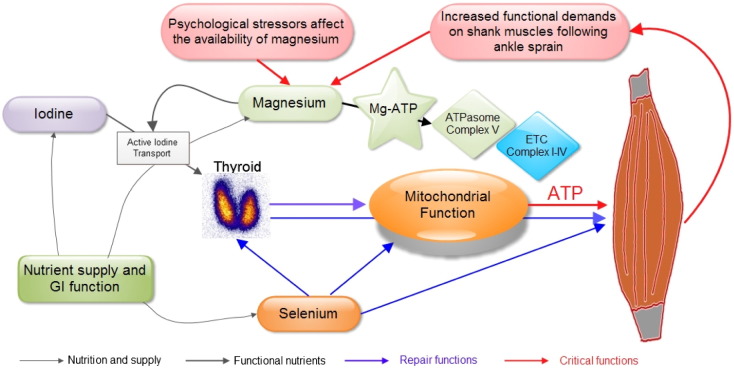Fig. 13.
The basic elements iodine, selenium and magnesium are provided by an adequate nutrition and a healthy functioning GI tract. Magnesium is directly related to magnesium–ATP in Complex V of the ATP-some in the mitochondria. With sufficient magnesium supply the mitochondria supply enough ATP and energy-dependent processes such as iodine uptake are maintained. Selenium and selenoproteins play an important role in antioxidant functions in the body. Through the influence of physical and psychological stressors the balance of magnesium availability can be compromised leading to diminished ATP production. Physical stress augments according to the intensity of physical activity. Thyroid hormones stimulate mitochondrial biogenesis as well as muscle repair. The final clinical settings are: 1) Hypothyroidism: low magnesium levels with low iodine uptake and low need of muscle repair. 2) Hyperthyroidism: low magnesium with inefficient OXPHOS, increased need of muscle repair due to musculoskeletal changes (lateral tension, IMT) which leads to increased production of thyroid hormones triiodothyronine (preferentially) and thyroxine.

